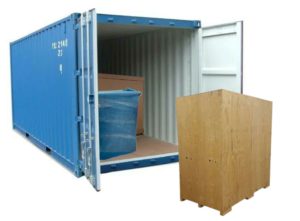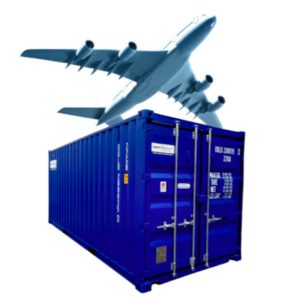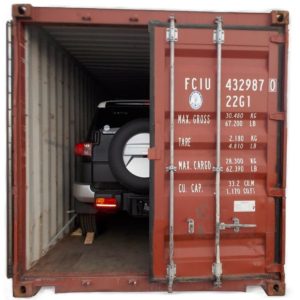Service – Moving to Austria
- LCL / Groupage
- LCL + Airfreight
- Car Shipping
- DIY Benefits
- Additional Services
Moving to Austria – Worth Knowing
- Live in Austria
- Buy Real Estate
- Work in Austria
- Costs and Expenses
- Visas and Residency
- Health Insurance
SERVICES – MOVING TO AUSTRIA
OTC Global GmbH offers a comprehensive range of services for all types of transportation and relocation, whether by sea freight, land transport, or air freight. Our service includes organizing multimodal shipping and managing reliable bureaucracy, which covers handling import procedures in compliance with current import regulations in Austria. We also provide comprehensive transport insurance, secure car shipping to Austria, and packing services for large items or even your entire household. Additionally, we offer complete door-to-door transport and customs clearance in Austria. This integrated approach ensures that your move is handled efficiently and your belongings are protected throughout the transit. Please inquire further about your options!
Packing and Securing Your Household Goods
Our specialists meticulously choose the packaging for your move based on the type of items involved. Should you need a pick-up service, we can begin the initial packaging right at your premises. The final preparation occurs at our warehouse.
We use bubble wrap for fragile items, protective blankets to guard against scratches, and straps to secure your belongings. Our robust boxes, tailor-made crates, and pallets provide safety, ease transportation, and support storage. Although our main objective is to ensure the secure delivery of your shipment to Austria, we are dedicated to employing materials that are eco-friendly and effective.
Low Cost LCL Shipping to Austria
Our LCL move (Less than Container Load) provides an economical option for relocating to Austria with a partial load. Your household items will be securely and efficiently transported as part of a consolidated container load. By sharing the container, you reduce the costs associated with moving to Austria.
Our skilled team guarantees smooth documentation and secure packing of your goods. Contact us for more details about the shared container and economize on your smaller move to Austria. This alternative is perfect for those transporting fewer items and wishing to avoid the cost of a full container.
LCL + Air Freight to Austria
OTC Global provides a transport solution that encompasses air freight for urgently required items up to a volume of 1m³, alongside LCL (Less than Container Load) shipping by sea.
Your household items will be transported as an economical part-load in a shared container. Additionally, the compact 1m³ air freight shipment guarantees that essential items are rapidly available in Austria. If your move requires a full container, this air freight option can be integrated with a shipping container from OTC, whether purchased by you or supplied by the shipping company. This service is tailored to facilitate your efficient relocation to Austria.
Car Shipment to Austria
Our car transport to Austria offers a straightforward and economical vehicle transfer service. We handle the secure transportation of your car, motorcycle, and other vehicles, adhering to import regulations – Austria.
Depend on OTC’s expert service for your seamless and affordable car transport to Austria via RoRo (Roll-on/Roll-off) shipping or container transport. Throughout the car import process to Austria, we ensure meticulous loading and comprehensive insurance for your vehicle transport.
1. Roll-on/Roll-off (RoRo) Shipping: RoRo shipping is designed specifically for wheeled cargo that can be driven on and off the ship. Here’s how it works and its benefits:
- Simplicity and Efficiency: Vehicles are driven directly onto the ship and secured on the cargo decks. This drive-on/drive-off system is not only efficient but also reduces handling risks during loading and unloading.
- Cost-Effectiveness: RoRo can be more economical than container shipping because it requires less handling and the fees associated with container usage are avoided.
- Speed: RoRo shipping often has more frequent departures compared to container ships, which can lead to faster delivery times for your vehicle.
- Safety: The vehicle is exposed to minimal handling, reducing the likelihood of damage. The indoor storage on the ship protects it from the elements during transit.
2. Container Transport: Container shipping involves securing vehicles within a standard shipping container. This method provides several unique advantages:
- Protection: A container offers the highest level of protection from the external environment, including weather and sea conditions. This is particularly valuable for high-value or classic cars that require extra care.
- Security: Vehicles are less susceptible to theft or vandalism because they are enclosed in a locked container.
- Flexibility: Container shipping allows for the transport of personal belongings along with the vehicle, which is not possible with RoRo. This can be a significant advantage if you are moving internationally and need to ship household items as well.
- Availability: Containers can be shipped using any vessel that carries containerized cargo, offering greater flexibility in terms of routes and timing.
Choosing Between RoRo and Container Transport: The choice between RoRo and container transport depends on several factors including the type of vehicle, budget, preferred transit time, and need for additional security or protection. For example, if you are shipping a standard vehicle and want a cost-effective and quick option, RoRo might be the best choice. However, if you are transporting a luxury, antique, or specially modified vehicle, container shipping could provide the added protection and security you need.
Both RoRo and container shipping methods offer reliable solutions for international vehicle transport, with each providing specific benefits that can meet various transportation needs.
Do-it-yourself reduces moving costs
We also consider any personal involvement you wish to undertake.
For instance, you can handle the packing and documentation of your household items independently, while entrusting OTC with the securing and loading of the moving container. Alternatively, you have the option to load a container provided by us on your own. You may choose to arrange a storage location in Austria independently, while leaving interim storage until transportation to us.
It’s up to you to prioritize! Depending on the agreement, OTC can coordinate the entire relocation along with related services or handle specific aspects of the transfer as per your preference.

SERVICE
Our Additional Services – Assistance for Your Move to Austria
At OTC, you not only benefit from a smooth transportation of your household to Austria but also from a range of supplementary services designed to ease your transition. We take care of all the particulars, allowing you to concentrate on a hassle-free fresh start.
Our extensive additional services encompass:
Pick-up Service
We directly collect your freight from your home, eliminating the need for you to arrange transportation to the port or shipping location. Upon request, we can arrange for a no-parking zone at your residence, ensuring a swift and efficient pick-up process.
Packing Service
We provide expert packing services for large items like furniture and machinery. Upon request, we can also handle the packing of your entire household, utilizing bubble wrap, boxes, and sea crates for utmost protection.
Expert Loading
Our team meticulously loads your goods into the overseas container to safeguard them from any damage during transit.
Intermediate Storage
We offer interim storage solutions in your home country until the transportation date is finalized, or in Austria if your new residence is not yet accessible.
Insurance
Your belongings are fully insured with us to ensure the utmost security. Our moving insurance, inclusive of transport insurance, provides reliable coverage for damages up to substantial amounts. During a personal discussion, we collaborate to determine the insurance solution that best aligns with your project.
Documentation
We handle all essential documentation for exporting from countries such as the USA, UK, or Canada, as well as for importing to Austria in accordance with Austrian import regulations.
MOVING TO AUSTRIA – WHAT YOU NEED TO KNOW
When contemplating a move to Austria and beginning a new chapter in cities like Vienna, Salzburg, Graz, Innsbruck, Linz, or Klagenfurt, there are several vital factors to consider. Relocating to Austria requires thorough planning and preparation.
It’s not just about selecting the city that suits you best—whether it’s the cultural richness of Vienna, the scenic beauty of Salzburg, or the vibrant atmosphere of Graz. It’s also crucial to take into account cultural differences, the cost of living, and local conditions. Moving to Austria also means familiarizing yourself with the legal and administrative aspects of the country.
Therefore, it’s advisable to spend an extended period in your chosen city before making the final decision, to ensure it meets your expectations and lifestyle preferences. Financial planning is another essential aspect to consider. Creating a detailed financial plan for the initial months after moving, covering all potential expenses, including unforeseen ones, is wise. Approaching your relocation to Austria in this manner can help make it a positive and fulfilling experience.
Living in Austria
Austria boasts a rich cultural heritage intertwined with a modern lifestyle, making it an appealing destination for people from diverse backgrounds. Vienna, the capital, stands out for its opulent history and vibrant arts scene, drawing in individuals seeking a blend of tradition and innovation.
Salzburg, renowned as the birthplace of Mozart, offers a charming mix of baroque architecture and picturesque landscapes, attracting both culture enthusiasts and nature lovers alike.
Graz, with its well-preserved medieval old town and lively student population, provides a dynamic atmosphere where history seamlessly merges with contemporary living.
Each city in Austria offers a distinct living experience, characterized by a high standard of living, efficient infrastructure, and a rich cultural tapestry, ensuring residents have access to a wide range of leisure and recreational activities.
Living in Austria, particularly in cities like Vienna, Salzburg, or Graz, offers a unique experience blending tradition with modernity, making it especially appealing to expatriates and immigrants seeking a rich cultural environment. Vienna, known for its imperial history and artistic legacy, provides an ideal setting for newcomers to immerse themselves, though mastering the German language can greatly enhance one’s integration. While English is widely spoken, particularly in professional circles and among the younger populace, proficiency in German fosters deeper personal connections and a fuller appreciation of Austria’s cultural heritage.
Daily life in Austria is characterized by a well-ordered, punctual society where rules and regulations are observed, creating a stable and efficient living environment. Public transportation is dependable, and cities are thoughtfully designed, facilitating easy navigation for commuters. Shopping hours may differ from expectations, with most stores closing by early evening on weekdays and having limited hours on Saturdays, while Sundays are typically reserved for leisure, reflecting Austria’s emphasis on work-life balance.
Socializing in Austria may pose initial challenges due to the reserved nature of its people, but the social scene, especially in cities like Vienna, is vibrant and diverse. Clubs, meetups, and expat communities offer ample opportunities to meet new people and build connections. Austrians value authentic, meaningful relationships, and once established, friendships tend to be enduring. Participating in local activities, joining clubs or sports groups, and attending community events are effective ways to forge bonds.
Understanding local customs is essential; for instance, offering to assist with chores after a meal when invited to someone’s home is customary, and punctuality is regarded as a sign of respect. Austrians also appreciate directness and honesty in communication, which may differ from more reserved communication styles found in other cultures.
Transportation and Public Transit in Austria
Austria boasts a well-developed and efficient public transportation network that encompasses buses, trams, and trains, ensuring convenient travel for residents throughout the country. The Austrian Federal Railways (ÖBB) operates an extensive railway network, offering a variety of services ranging from local commuter trains to high-speed Railjets that connect major cities both domestically and internationally. Additionally, regional train services extend into more rural and suburban areas, providing comprehensive coverage across the nation.
Navigating Austrian cities by car can be challenging due to congestion and strict parking regulations, although the road infrastructure is well-maintained and signage is clear. Residents and visitors can drive using a valid EU driver’s license or an international driving permit. Taxis are readily available in major cities like Vienna, Salzburg, and Graz, providing an alternative transportation option, while ride-sharing services like Uber are gaining popularity, particularly in urban centers.
Austria emphasizes the integration of various transportation modes, with many transport hubs facilitating seamless transfers between local and long-distance services. This interconnectedness is further bolstered by extensive cycling paths and pedestrian zones, promoting sustainable mobility solutions within cities. Additionally, public transit in Austria is renowned for its punctuality and reliability, reflecting the country’s commitment to providing high-quality transportation services for its residents and visitors alike.
Emigrating to Austria
Austria is a top destination for expatriates, renowned for its robust economy, exceptional quality of life, and strategic location in the heart of Europe. Each year, a diverse array of expats from around the world, including the USA, UK, other European nations, and increasingly from Asia, are drawn to Austria by its abundant opportunities. Recent trends indicate a steady rise in the number of expatriates in Austria, with over 2 million residents born outside its borders, highlighting its appeal as one of Europe’s premier immigrant destinations.
Cities like Vienna, Salzburg, and Innsbruck stand out as magnets for expatriates due to their dynamic employment prospects, rich cultural offerings, and cosmopolitan atmospheres. These urban centers provide an ideal environment for new expatriates in Austria, fostering a vibrant milieu characterized by diversity and innovation. Conversely, expats residing in smaller Austrian towns often experience a deeper immersion into local culture, forging close-knit communities eager to embrace newcomers.
While proficiency in German may not always be essential, particularly in major cities or within international organizations, learning the language can significantly enhance one’s integration and exploration of life as an immigrant in Austria. The country’s integration programs and support services aid newcomers in adapting to Austrian life, making it an enticing choice for those seeking a fresh start. With its high living standards, rich cultural heritage, and inclusive policies, Austria continues to attract expatriates in search of a harmonious and enriching life abroad.
A Customer’s Expat Experience in Austria
One of our customers, whose relocation to Austria we facilitated, graciously shared insights into their expatriate journey after residing in the country for nearly eight years. They shed light on the various facets of expat life, highlighting both the advantages and challenges encountered along the way. They expressed gratitude for Austria’s safety, excellent healthcare system, and largely accessible higher education, all of which significantly enhanced their overall quality of life. The efficient public transportation network and abundant cultural offerings also contributed to Austria’s appeal, particularly as a conducive environment for raising a family.
However, they acknowledged that adapting to Austrian cultural norms presented its share of difficulties. In their experience, the direct communication style prevalent in Austria could be perceived as brusque by individuals accustomed to more indirect forms of expression. Additionally, the reserved demeanor of some locals might be misinterpreted as aloofness, as casual friendliness is not as common.
Navigating social circles, which can sometimes be insular and closed off to outsiders, occasionally resulted in feelings of isolation for them. Furthermore, juggling work and family responsibilities proved challenging, particularly given traditional school schedules and societal expectations regarding parental roles.
Despite these challenges, our customer firmly believes that the benefits of living in Austria, such as its stable economy and rich cultural heritage, outweigh any drawbacks. They emphasized that while Austria offers an enviable quality of life, it may not be a perfect fit for everyone, as individual preferences and cultural differences significantly influence one’s adaptation to a new country. They also mentioned occasional encounters with rudeness and noted differences in discipline within certain settings, such as schools. Establishing genuine connections with native Austrians proved challenging at times, prompting introspection on whether it was their introverted nature or cultural barriers hindering their efforts.
Returning Austrians: Embracing Homecoming
Austria is experiencing a significant trend of its citizens returning home after living abroad for extended periods. Official statistics indicate that each year, a substantial number of Austrians choose to return, with many coming back from European countries, the United States, and Canada. This reverse migration is largely influenced by Austria’s enduring economic stability and exceptional quality of life.
Historically, many Austrians emigrated for various reasons, including seeking better economic opportunities or escaping political turmoil, particularly during turbulent periods such as World Wars and the Cold War. Political oppression, economic hardships, and post-conflict repercussions led numerous individuals to seek refuge elsewhere. However, contemporary returnees often cite Austria’s advanced social infrastructure and robust healthcare system as key factors in their decision to return.
The Austrian government offers various support programs to facilitate the reintegration of these returning citizens, ensuring a smoother transition for families and individuals alike. Notably, the largest groups of returnees come from neighboring European countries, highlighting the close economic and cultural ties within the region. This movement back to Austria underscores the country’s reputation as a stable and inviting environment for those who once sought adventures abroad.
Integration in Austria
Austria, historically recognized for its economic stability, has emerged as a significant destination for immigrants since the 1970s. Presently, approximately 18.5 percent of Austria’s population is foreign-born. This transformation was influenced by various factors, including the economic upswing of the late 1990s, which attracted individuals from lower-income nations. Despite the global economic challenges between 2007 and 2014, many migrants opted to remain in Austria.
The primary countries of origin for immigrants are the EU-27, Africa, and the Middle East, with significant numbers hailing from countries like Turkey, Poland, and Syria. The immigrant community in Austria tends to be younger than the native population, with an average age of 35.8 years compared to 44.9 years for Austrian nationals.
Immigrants from certain regions, particularly those from countries in Southern Europe and Latin America, benefit from streamlined pathways to Austrian citizenship. They can apply for naturalization after just six years of residency, as opposed to the standard ten years required for other migrants. Consequently, many individuals from these regions choose to acquire Austrian citizenship.
Current challenges in terms of integration include fostering social cohesion and promoting coexistence. There is a recognized need to invest in public institutions dedicated to fostering diversity management and promoting social inclusion. Additionally, ensuring equal rights for the children of migrants and implementing strategies to combat discrimination and prejudice are imperative.
For those contemplating immigration to Austria or embarking on a new life there, the country boasts a rich history of successful integration and provides an array of resources and support for newcomers. Austria remains committed to refining its integration policies to better accommodate and assimilate its diverse population, making it an attractive destination for prospective immigrants.
The Educational Landscape of Austria: An Overview of Schools and Learning Environments
Austria’s education system is renowned for its comprehensive structure and robust support for students’ academic and vocational needs. This article explores the various facets of Austrian schools, from primary education to higher secondary options, and highlights the unique features that set the Austrian educational model apart.
Primary and Secondary Education
Education in Austria is compulsory for all children aged six to fifteen, covering primary and lower secondary levels. Primary education, known as Volksschule, lasts for four years, where the focus is on basic skills in mathematics, reading, writing, local and world history, and natural sciences. The approach is nurturing and aims to prepare children for various pathways in secondary education.
After primary school, students transition to lower secondary education, which can be at a Gymnasium or a Neue Mittelschule. The Gymnasium is a more academically-oriented track that lasts until the age of 18, culminating in the Matura, a rigorous leaving examination that opens doors to higher education. Alternatively, the Neue Mittelschule provides a more general education with a stronger focus on vocational training, preparing students for direct entry into the workforce or further vocational studies.
Upper Secondary and Vocational Education
At the upper secondary level, students have the choice to pursue academic or vocational pathways. Vocational schools, known as Berufsbildende Mittlere und Höhere Schulen (BMHS), offer programs that combine academic coursework with practical training in fields like engineering, commerce, tourism, and social work. These schools are highly regarded for integrating apprenticeships and workplace training with classroom learning, which is a cornerstone of the dual education system.
For those continuing in academic tracks, the Gymnasium’s upper levels focus on advanced subjects in sciences, humanities, arts, and languages. This preparation is critical for students aiming to pass the Matura and pursue university studies.
Higher Education and Beyond
Students who successfully pass the Matura exam are eligible to attend universities in Austria, which offer a wide range of undergraduate and postgraduate programs. Austrian universities are known for their strong emphasis on research and development, particularly in sciences and arts.
Moreover, Austria boasts several Fachhochschulen, or Universities of Applied Sciences, which provide focused and practical degree programs that are closely linked to industry needs. These institutions are popular among students seeking practical and career-oriented education that can lead directly to job opportunities.
Challenges and Innovations
Despite its strengths, the Austrian education system faces challenges such as addressing the needs of a diverse student population, including immigrants and students with disabilities. The government and educational institutions are continuously working on reforms to make education more inclusive and to provide equal opportunities for all students.
Innovatively, Austria has embraced digital education by incorporating technology into classrooms and curriculum, preparing students for a digitally interconnected world. Schools are equipped with modern technological tools, and teachers are trained in digital pedagogy, ensuring that students are proficient in using digital resources.
Conclusion
The Austrian educational system offers a well-rounded and diverse array of pathways for young learners, from traditional academic routes to specialized vocational programs. With its focus on both theoretical knowledge and practical skills, Austria ensures that its students are well-prepared to face the challenges of the modern workforce and contribute positively to society. As the world evolves, Austria continues to adapt its educational practices to meet the changing needs of its students, making it a model worth watching in the global educational arena.
Did You Know? Interesting Facts About Austria
Austria, known for its rich cultural heritage and stunning landscapes, boasts several unique characteristics that set it apart on the global stage:
- Vienna’s Coffee House Culture is not only a beloved tradition but also a UNESCO Intangible Cultural Heritage. The city’s coffee houses are renowned for their elegant interiors and as meeting places where people can read, chat, and enjoy the local pastries alongside a classic Viennese coffee.
- The Austrian Alps cover 62% of the country’s total land area, offering a paradise for skiers, hikers, and nature lovers. The Alps are integral to Austria’s identity, influencing both the climate and the culture of the regions they traverse.
- Musical Heritage: Austria is famously known as the birthplace of classical music, home to legendary composers like Mozart, Beethoven, and Strauss. Vienna, often called the “City of Music,” hosts the celebrated Vienna Philharmonic Orchestra, one of the finest in the world.
- Austrian Cuisine is famous for its diversity and quality, especially known for dishes such as Wiener Schnitzel, Strudel, and Sacher-Torte. Additionally, Austria takes pride in its wine, particularly white varieties such as Grüner Veltliner, produced in the vineyards along the Danube River.
- Salzburg Festival is one of the most prestigious music and drama festivals in the world, attracting thousands of visitors annually to the city where Mozart was born. This festival is a celebration of operatic and theatrical performances as well as classical music.
- Innsbruck, the Capital of the Alps, is unique for hosting the Winter Olympic Games three times. This city seamlessly combines its historic past with a vibrant modern cultural scene, surrounded by breathtaking mountain scenery.
- Austria’s commitment to environmental sustainability is evident in its widespread use of renewable energy, particularly hydropower, which constitutes around 70% of its total electricity production, one of the highest rates in the world.
- The Vienna State Opera is an iconic cultural institution, known for its groundbreaking performances and as a pivotal location in the world of opera. The building itself is an architectural masterpiece, and attending a performance here is considered a quintessential Viennese experience.
- The Danube River, Europe’s second-longest river, flows through Austria and is a vital waterway for transport, tourism, and recreation. The Danube Valley is especially famous for its scenic beauty and vineyards.
- Austria’s linguistic diversity is marked by various dialects of German spoken throughout the country, each with distinct pronunciations, vocabularies, and grammatical features. This linguistic variety is a testament to the country’s regional cultural diversity.
- Hallstatt, often dubbed the most beautiful village in the world, is a stunning representation of Austrian heritage. This UNESCO World Heritage site, nestled between a serene lake and steep mountain ranges, is known for its salt production, a tradition that dates back thousands of years.
- The Vienna Ring Road, or Ringstraße, encircles the inner city of Vienna and showcases monumental buildings from the late 19th century, including the State Opera House, the Parliament Building, and the City Hall. This grand boulevard is a showcase of architectural excellence and urban planning from the era.
- Austrian Christmas Markets are among the most traditional and atmospheric in Europe. From Vienna’s Rathausplatz to Salzburg’s historic squares, these markets are celebrated for their festive decorations, unique crafts, and seasonal treats like Glühwein and Lebkuchen.
- The Sound of Music, one of the most beloved musicals of all time, was filmed in and around Salzburg. The city and its surroundings attract fans from all over the world eager to see the filming locations and relive the scenes of the Von Trapp family’s story.
- Eco-Tourism in Austria is not just a concept but a practice. With its vast protected areas, such as the Hohe Tauern National Park—the largest in Central Europe—Austria offers a myriad of opportunities for sustainable tourism, spotlighting its commitment to preserving its natural landscapes.
- The Austrian tradition of Ball Season is another cultural highlight, with more than 450 balls taking place in Vienna every winter. These balls are held in various beautiful locations, including palaces, and attract thousands of visitors who come to waltz the night away in formal attire.
- Austrian Literature has a profound history with influential figures such as Stefan Zweig, Thomas Bernhard, and Elfriede Jelinek, the 2004 Nobel Prize in Literature laureate. Vienna’s coffee houses were not just hubs for socializing but also for literary and intellectual exchanges, playing a crucial role in the development of modernist literature.
- The Prater in Vienna is a large public park that originally belonged to the imperial family. Today, it’s home to the Wurstelprater amusement park, which features the Giant Ferris Wheel, a historic landmark of the city’s skyline, providing a unique view of Vienna.
- Architectural Innovation: Besides historical architecture, Austria also embraces contemporary design. The Kunsthaus Graz, an art museum in Graz, and the Hundertwasserhaus in Vienna are examples of innovative modern architecture that draws visitors and architecture enthusiasts alike.
- Austria’s Global Influence extends beyond arts and culture. It has also been a pivotal player in international politics and diplomacy, home to many international organizations, including parts of the United Nations. Vienna’s role as a host city for diplomatic activities underscores its importance in global affairs.
Buying Real Estate in Austria
Investing in real estate in Austria can be an attractive opportunity for both domestic and international buyers. The country’s stable economy, high quality of life, and beautiful landscapes make it a sought-after location for purchasing property. Here’s a detailed look at the key aspects you need to consider when buying real estate in Austria.
Understanding the Legal Framework
Austria has specific regulations governing real estate transactions, which can vary by region. Foreign buyers should be particularly aware of these variations:
- Restrictions on Foreign Buyers: Some regions in Austria, especially in Tyrol and Vorarlberg, impose restrictions on foreign buyers to preserve local housing availability. It’s essential to check local laws to understand if you, as a foreigner, are eligible to purchase property in the desired area.
- Necessity of a Real Estate Agent: Utilizing a local real estate agent can provide valuable insights and help navigate the complex legal landscape. Agents are well-versed in local regulations and can assist in finding properties that meet legal requirements for foreign ownership.
- Role of the Notary: In Austria, a notary plays a crucial role in real estate transactions. The notary drafts the purchase agreement, conducts a title search to ensure there are no liens or disputes on the property, and registers the new owner with the land registry.
Financial Considerations
The cost of buying property in Austria goes beyond the purchase price and includes several additional fees:
- Property Transfer Tax: Buyers must pay a property transfer tax that ranges from 3.5% to 4% of the purchase price, depending on the region.
- Notary Fees and Legal Costs: These can range from 1% to 3% of the purchase price. It’s advisable to budget for these early in the purchasing process.
- Real Estate Commission: Typically, the buyer and seller split the real estate agent’s commission, which can be up to 3% of the purchase price plus VAT for each party.
- Ongoing Costs: Owning property in Austria involves additional costs such as property taxes, maintenance fees, and possibly, management fees if the property is part of a housing association.
Mortgage and Financing
Foreign nationals can obtain mortgages in Austria, though the conditions might be stricter compared to local buyers. Key points include:
- Down Payment: Typically, banks require a down payment of at least 20% to 30% of the property’s purchase price.
- Interest Rates: These vary depending on the bank and the economic situation. Comparing offers from several banks is recommended.
- Documentation: Potential buyers will need to provide proof of income, a clean credit history, and sometimes a statement of assets.
Searching for Property
When searching for property in Austria, consider the following:
- Location: Popular areas for expatriates and second-home owners include Vienna, Salzburg, and regions in the Alps like Tyrol. Each area has its own appeal, whether it’s urban convenience, historical charm, or access to outdoor activities.
- Type of Property: From traditional chalets in the Alps to modern apartments in the city, Austria offers a diverse range of property types. It’s important to consider what type of property best suits your lifestyle and investment goals.
- Future Value: Consider the potential for property value appreciation, especially in sought-after locations or upcoming areas. Investing in real estate in a developing area can offer significant returns.
Closing the Deal
Closing a real estate transaction in Austria is a formal process that concludes with the signing of the purchase agreement in the presence of a notary. After the contracts are signed and the payments made, the notary will register the change of ownership with the local land registry.
Purchasing property in Austria can be a rewarding investment given the country’s stability and scenic beauty. However, navigating the purchase process requires careful planning and consideration of the legal and financial implications. Engaging with local experts such as real estate agents, notaries, and legal advisors is crucial to ensure a smooth and successful transaction.
Renting apartment in Vienna
Vienna, the capital of Austria, is known for its high quality of life, vibrant culture, and stunning architecture. Whether you’re moving for work, study, or simply to enjoy life in one of Europe’s most beautiful cities, finding the right apartment can be a crucial part of your transition. Here’s what you need to know about renting an apartment in Vienna.
Understanding the Rental Market
Types of Rentals:
- Short-term Rentals: These are typically furnished and are ideal for tourists or those staying in Vienna for a few months. They can be found on platforms like Airbnb or local vacation rental sites.
- Long-term Rentals: Unfurnished apartments are more common for long-term leases. These rentals usually require a commitment of at least one year and often do not include appliances or light fixtures.
Price Ranges:
- The cost of renting in Vienna varies widely depending on the district. Inner districts (1-9) are generally more expensive, with smaller, more luxurious apartments. Outer districts offer more space at a lower cost. As of now, average rent ranges from €13 to €17 per square meter.
Key Steps to Renting
Finding an Apartment:
- Online Portals: Websites like Willhaben, ImmobilienScout24, and Der Standard offer extensive listings for rentals across Vienna. These sites allow you to filter by size, price, and district.
- Real Estate Agents: Using an agent can simplify the search, especially if you’re unfamiliar with the city or the German language. Agents can provide valuable insights and handle negotiations.
Understanding the Lease Agreement:
- Lease Terms: Most leases are signed for a minimum of one year, but three-year leases are also common. Understanding the terms regarding lease renewal and termination is important.
- Deposits: A security deposit of up to three months’ rent is standard in Vienna. This deposit is held to cover any damages and should be returned at the end of your lease, provided the apartment is in good condition.
- Utilities and Additional Costs: Make sure to check what is included in the rent. Often, additional costs (Betriebskosten) such as water, heating, and maintenance fees are not included in the quoted rent.
Legal Considerations
Tenant Rights:
- Austria has strong tenant protection laws. Rent increases are regulated, and landlords must provide a justified reason for terminating leases. Tenants have the right to privacy, meaning landlords cannot enter the property without notice.
Registration Requirement:
- Once you have signed your lease, you will need to register your new address with the local Registration Office (Meldeamt). This registration (Anmeldung) is a legal requirement for living in Austria.
Tips for Renters
Inspect the Property:
- Before signing anything, thoroughly inspect the apartment. Check that all fixtures are in good working order and note any existing damages to ensure you are not held responsible for them later.
Neighborhood Research:
- Spend some time in the neighborhood during different times of the day and week to get a feel for local amenities, transport links, and the general atmosphere.
Language Barrier:
- If you are not fluent in German, consider bringing a fluent friend or hiring a translator for the viewing and lease signing to ensure that you fully understand the contract terms.
Renting an apartment in Vienna offers the chance to live in a city rich in history and modern conveniences. With careful planning and consideration of the details mentioned above, you can find the perfect home in this charming European capital.
Working in Austria
Austria is an attractive destination for professionals looking for a high quality of life and excellent career opportunities. With a strong economy, a central European location, and a rich cultural environment, working in Austria can be a rewarding experience. Here’s what you need to know about entering the Austrian job market.
Employment Landscape
Key Industries: Austria’s economy is well-rounded, with strong sectors including manufacturing, international trade, and tourism. It is also notable for its contributions to various high-tech industries, such as environmental technologies and renewable energy. The service sector, particularly in cities like Vienna, Salzburg, and Innsbruck, is another significant employer due to the robust tourism industry.
Job Market: The job market in Austria is competitive, with a high level of education and qualifications often required. However, there are opportunities, especially for skilled professionals in engineering, IT, and health services. Vienna, as a global city and diplomatic hub, also offers numerous positions in international organizations and NGOs.
Legal Requirements
Work Permits and Visas: Citizens from EU countries do not require a work permit to work in Austria, thanks to the EU’s free movement of labor policy. Non-EU citizens will need to obtain a work permit. The Red-White-Red Card is a popular choice for skilled workers from third countries, allowing them to live and work in Austria with their families.
Social Security and Taxes: Everyone working in Austria must contribute to the country’s social security system, which covers health insurance, pensions, and unemployment benefits. The tax system is progressive, so the more you earn, the higher your tax rate will be.
Working Conditions
Working Hours: The typical workweek in Austria is around 40 hours, with a legal maximum of 48 hours. Most full-time employment contracts stipulate a five-day working week.
Vacation and Holidays: Employees in Austria are entitled to a minimum of 25 working days of paid vacation per year. Additionally, there are 13 public holidays.
Salaries and Benefits: Salaries in Austria are generally competitive, depending on the industry and one’s qualifications. Many employers also offer additional benefits such as health insurance, bonuses, and pension contributions.
Cultural Considerations
Work Culture: Austrian work culture emphasizes punctuality, formality, and a clear hierarchical structure. Decisions tend to be made at the top levels of management, although input from all levels is often encouraged in team meetings.
Language: While many international firms in Austria operate in English, having proficiency in German is a significant advantage and, in many cases, a requirement. This is particularly true in customer-facing roles and many administrative positions.
Finding a Job
Job Searching: Online job portals like Karriere.at, StepStone Austria, and the Public Employment Service Austria (AMS) are excellent resources. Networking, both online and in-person, can also be crucial, as many positions are filled through connections.
Application Process: Typical applications include a cover letter and a detailed CV. It’s important to tailor your application to each job, highlighting the skills and experiences that match the job description.
Interviews: The interview process in Austria usually consists of multiple stages, including an initial screening call followed by one or more in-person interviews. Be prepared to discuss your qualifications in detail and how you can contribute to the company.
Working in Austria offers many opportunities to experience its high standard of living, excellent work-life balance, and cultural richness. Understanding the local job market, preparing for the application process, and meeting legal employment requirements are essential steps to take for a successful career in Austria.
Costs and Expenses in Austria
Austria is known for its high quality of life, efficient public services, and stunning natural landscapes. However, living in this central European country also comes with its set of costs. Here’s an overview of the typical expenses you might encounter while living in Austria, whether you’re planning to move there or just visit.
Housing Costs
Housing is usually the largest monthly expense for most people in Austria. The cost can vary significantly depending on the location and type of accommodation:
- Vienna: As the capital and largest city, Vienna typically has the highest rent prices. A one-bedroom apartment in the city center can cost anywhere from €800 to €1,500 per month, while outside the city center the price might range from €600 to €1,100.
- Other Cities: In cities like Graz, Linz, and Salzburg, rents are slightly lower. You can expect to pay between €600 to €1,200 for a one-bedroom apartment in city centers and between €450 to €900 outside city centers.
- Rural Areas: If you’re looking to live in rural areas, the costs drop significantly, with rents for similar apartments ranging from €400 to €800.
Utility Costs
Utilities, including electricity, heating, cooling, water, and garbage, can cost between €150 and €250 per month for an 85m² apartment. Internet subscriptions are around €20 to €30 per month.
Transportation Costs
Public transportation in Austria is efficient and widely used, particularly in major cities:
- Public Transport: A monthly pass can cost between €30 (in smaller cities) to €50 (in Vienna).
- Driving: If you own a car, gasoline costs around €1.50 per liter as of recent data. Car insurance and maintenance are additional costs to consider.
Food and Groceries
Grocery prices in Austria are reasonable but can vary based on dietary preferences and shopping habits:
- Supermarkets: Basic groceries for one person can range from €200 to €300 per month.
- Dining Out: A meal at an inexpensive restaurant might cost around €10 to €15, while a three-course meal for two at a mid-range restaurant can cost around €50 to €70.
Healthcare Costs
Healthcare in Austria is covered by the country’s universal health care system. Residents are required to pay health insurance contributions based on their income, which typically amount to about 7.65% of the gross salary. Co-payments are required for some services, including dental care and prescription medications.
Education Costs
Education in Austria is predominantly public and funded by the government, thus free at the point of use from kindergarten through to university level for EU citizens. However, private schooling and international schools are available, usually charging annual tuition fees ranging from €5,000 to €20,000 or more.
Leisure and Miscellaneous Costs
Leisure activities can also be a part of your monthly budget:
- Cinema Tickets: Typically, a cinema ticket costs around €10.
- Fitness Club: Monthly gym memberships range from €20 to €50 depending on the facilities.
- Cultural Activities: Entry fees for museums and historical sites are usually around €10 to €15.
Summary
Living in Austria means managing a budget that can vary greatly depending on your lifestyle and location within the country. Major cities like Vienna, Graz, and Salzburg offer all the amenities of urban life at a higher cost, while rural areas may offer significant savings but with fewer conveniences close by. Overall, Austria provides a remarkable quality of life that many find worth the costs.
Support Systems in Austria for International Students and Professionals
Austria not only offers a high quality of education but also provides robust support systems for international students and professionals. These systems are designed to help individuals adjust to life in Austria, navigate administrative processes, and integrate into the community. Here’s an overview of the key support systems available:
For International Students
1. University Services:
- International Offices: Most universities in Austria have dedicated international offices that provide guidance on enrollment, visa issues, housing, language courses, and more. They are the first point of contact for incoming international students.
- Student Unions: Student unions often offer help with practical issues, such as finding accommodation or setting up bank accounts. They also organize social events to help international students meet peers and build networks.
2. Language Support:
- German Language Courses: Many universities offer German language courses to help international students improve their language skills, which is crucial for daily life and integration.
- Tandem Learning Programs: These programs pair up native speakers with learners to practice the language in a friendly, informal setting.
3. Academic Support:
- Tutoring and Mentoring Programs: Universities typically provide tutoring services to help international students with their academic work. Mentoring programs can help students adjust to the academic culture in Austria.
- Career Services: University career centers offer counseling, resume workshops, and networking events specifically designed to help students, including internationals, prepare for the job market.
4. Psychological and Health Services:
- Counseling Centers: Many universities have counseling centers that offer psychological support to students facing stress or adjustment issues.
- Health Insurance: Health insurance is mandatory for all students, which covers most healthcare services at a very low cost.
For International Professionals
1. Welcome Centers:
- Expat Centers: Cities like Vienna and Graz have expat centers that provide information and services to help professionals settle in, including advice on legal, tax, and cultural issues.
- Chambers of Commerce: These can provide insights into the business environment, networking opportunities, and resources for starting a business or finding employment.
2. Professional Networks and Associations:
- Industry-Specific Associations: Joining an association within your professional field can provide valuable contacts and resources, as well as opportunities for continuing education and professional development.
- International Business Networks: Organizations such as the American Chamber of Commerce in Austria offer networking events and business advice relevant to expatriates.
3. Language and Integration Courses:
- Integration Courses: These courses not only teach the German language but also cover aspects of Austrian culture, legal systems, and history to help professionals integrate more smoothly into society.
- Private Language Schools: Many professionals opt for private courses to quickly improve their German language skills tailored to their specific needs.
4. Legal and Administrative Support:
- Migration Advice Centers: Offer guidance on residency permits, work permits, and other bureaucratic processes.
- Legal Advisors: Specializing in expatriate issues can help navigate the complexities of Austrian employment and residency law.
5. Social and Cultural Integration:
- Cultural Institutes: Institutions such as the Goethe-Institut offer events and seminars that promote German language and culture.
- Meetup Groups and Social Clubs: Various social groups and clubs are available where professionals can meet others with similar interests or backgrounds, which is particularly useful for building a new social circle.
By taking advantage of these extensive support systems, international students and professionals can enhance their experience in Austria, ensuring not only academic and professional success but also personal growth and satisfaction in their new environment.
Austrian Healthcare System for Expatriates
Austria is known for its efficient and comprehensive healthcare system, which provides high-quality medical services to residents, including expatriates. Understanding how to access and use these healthcare services can help expatriates feel more secure in their new environment. Here’s what expatriates need to know about the Austrian healthcare system.
Coverage and Eligibility
Health Insurance:
- Mandatory Insurance: Health insurance is compulsory for all residents in Austria, including expatriates. This is usually covered through employment, as employers are required to register their employees with one of Austria’s social insurance providers.
- Self-Employed and Unemployed: If you are self-employed or currently unemployed, you will need to register yourself with the relevant social insurance institution, such as the SVA (Social Insurance Institution for the Self-Employed).
Public vs. Private Insurance:
- Public Insurance: The majority of residents in Austria are covered under the public insurance scheme, which provides access to a wide network of facilities and doctors.
- Private Insurance: Expatriates may also opt for private health insurance, which can cover additional services not fully covered by public insurance, such as private hospital rooms or dental work. This is also an option for those who do not immediately qualify for public insurance.
Accessing Healthcare Services
Medical Facilities:
- General Practitioners (GPs): Once registered with an insurance provider, you will have access to a GP, who will be your first point of contact for most medical issues. GPs can refer you to specialists if needed.
- Hospitals: Public hospitals in Austria offer high-quality care. In case of emergencies, you are entitled to treatment in any public hospital.
- Pharmacies: Pharmacies are widely available, and prescription drugs are usually covered under health insurance plans.
Language:
- Language Services: While many doctors and medical staff in urban areas speak English, this may not always be the case in more rural areas. Some hospitals and clinics offer interpretation services or have staff members who can assist non-German speakers.
Costs and Contributions
Contributions:
- Payroll Deduction: Health insurance contributions are typically deducted from your salary, with the employer covering part of the cost. The exact percentage can vary, but it generally includes health, pension, and accident insurance.
- Co-payments: For certain services, such as hospital stays or special treatments, you might need to pay a small co-payment.
Additional Costs:
- Non-Covered Services: Some services, like dental aesthetics or alternative therapies, may not be covered under the public health insurance scheme and would require private insurance or out-of-pocket payments.
Special Considerations for Expatriates
EHIC Card:
- EU Nationals: If you are an EU national, you should obtain a European Health Insurance Card (EHIC) from your home country before moving. This card provides access to medical care under the same conditions as Austrian nationals until you are registered with the Austrian system.
Registration Process:
- Immediate Attention: Upon arriving in Austria, it’s advisable to register with a health insurance provider as soon as possible to avoid any gaps in coverage.
Family Coverage:
- Dependents: If you have dependents moving with you, they should be covered under the same health insurance policy, ensuring that your entire family has access to medical services.
The Austrian healthcare system’s comprehensive coverage ensures that expatriates have access to excellent medical care. Understanding how to navigate this system can make the transition to living in Austria smoother and less stressful. By ensuring you are properly registered and aware of your insurance coverage and healthcare options, you can protect your health while enjoying life in your new home.
Planning a Move to Austria? Trust Your Expert Forwarder OTC Global!
If you are considering a relocation to Austria, choosing the right logistics partner is essential for a seamless transition. OTC Global offers comprehensive relocation services designed to meet your unique needs, ensuring your move is smooth from start to finish. Our team provides personalized consultation to fully understand your specific requirements, ensuring every detail of your relocation is meticulously planned.
At OTC Global, we take pride in offering an all-inclusive service that includes everything from packing and customs clearance to transportation and unpacking in Austria. Our extensive knowledge of both EU and non-EU regulations guarantees that your belongings will navigate through customs smoothly, avoiding unnecessary delays or expenses.
Despite the high-quality service and detailed attention to every aspect of your move, OTC Global remains dedicated to providing affordable solutions. We recognize the importance of managing relocation costs and offer competitive pricing tailored to your budget and moving needs. Trust OTC Global to make your move to Austria as effortless and cost-effective as possible. Choose us for peace of mind, knowing that your belongings are in expert hands, allowing you to focus on settling into your new home and life in Austria.
Relocation to Austria: Comprehensive Guide for Moving Your Belongings
Moving to Austria requires careful planning, especially regarding the transport of personal belongings and household items from abroad. This guide will provide you with a detailed overview of how to organize your move to Austria efficiently and stress-free.
Understanding Austrian Customs Regulations for Relocation
When relocating to Austria, it’s crucial to understand the customs regulations that apply to your personal goods. Whether you are moving from within the EU or from non-EU countries, you will face different requirements. For items coming from outside the EU, customs clearance is a vital step. This involves declaring your goods and potentially paying import duties depending on their value and nature.
Choosing the Right Shipping Options for Moving to Austria
The choice between air freight and sea freight will significantly affect your moving process. Air freight is quicker but generally more expensive than sea freight, making it ideal for urgent shipments. Conversely, sea freight offers a cost-effective solution for moving large volumes of goods but takes longer. Factors such as the size and weight of your belongings, along with your budget and timeline, will dictate the most suitable shipping method.
Costs and Pricing for Moving to Austria: What to Expect
When planning your move to Austria, carefully consider the associated costs. These expenses can vary based on several factors, including the volume and type of your goods, and your choice between air freight and sea freight. Each mode of transport has its benefits and costs, with sea freight generally being more economical for larger shipments and air freight being faster but pricier.
For those relocating from non-EU countries, customs duties and insurance will also contribute to the overall costs. It’s crucial to handle these aspects meticulously to avoid any unexpected charges or delays. To get a clear picture of what your move might cost, consulting with a specialized relocation company for a detailed quote is highly recommended.
Benefits of Air Freight for Urgent Relocations to Austria
For time-sensitive relocations, air freight offers an unparalleled advantage in terms of speed and security. OTC Global leverages its extensive network and expertise to ensure rapid and safe delivery of your belongings to Austria. With meticulous planning and execution, we minimize the risk of transport damages and ensure compliance with all customs and import regulations, especially for goods coming from non-EU countries.
Comprehensive Relocation Services to Austria by OTC Global
OTC Global offers a full range of services to facilitate your move to Austria. This includes expert advice on customs clearance for imports from non-EU countries. Our knowledge of international customs regulations ensures a smooth and efficient entry of your goods into Austria, avoiding delays and extra costs. Trust OTC Global’s expertise for a hassle-free relocation experience, ensuring that your belongings arrive on time and in compliance with all legal requirements.
In summary, moving to Austria requires a thorough understanding of transportation options, costs, and customs regulations. By planning effectively and choosing the right relocation partner, you can ensure a smooth transition to your new home in Austria.
Questions about your Moving to Austria? Feel free to contact us via the inquiry form or just give us a call!
Our experienced team provides detailed consulting and will prepare a competitive offer with no obligation.
Headoffice in Berlin:
OTC Global GmbH
Helmholtzstr. 2-9
B 04.010
D-10587 Berlin
Phone: +49 30 208 4883 80
Fax: +49 30 639 697 44
E-Mail: [email protected]
Office Hours:
Monday – Friday 08:00 a.m. – 5:00 p.m.









